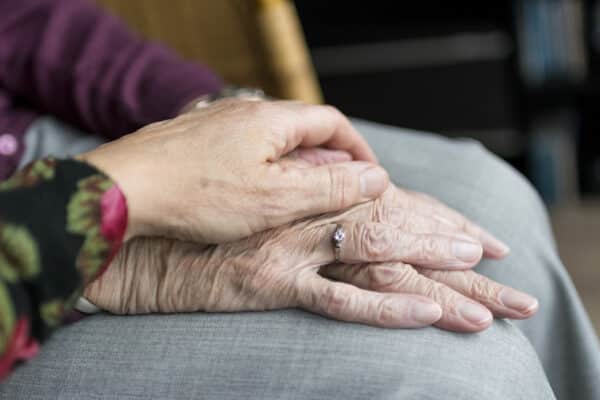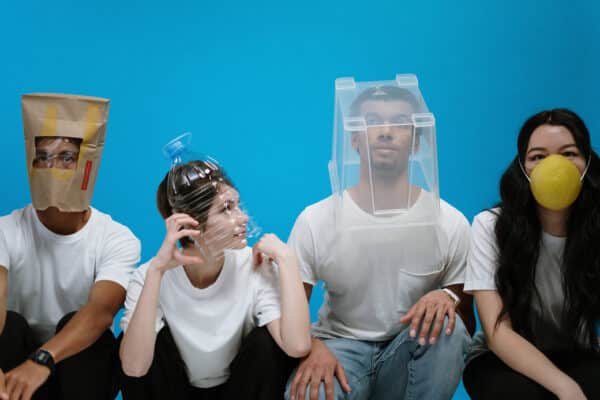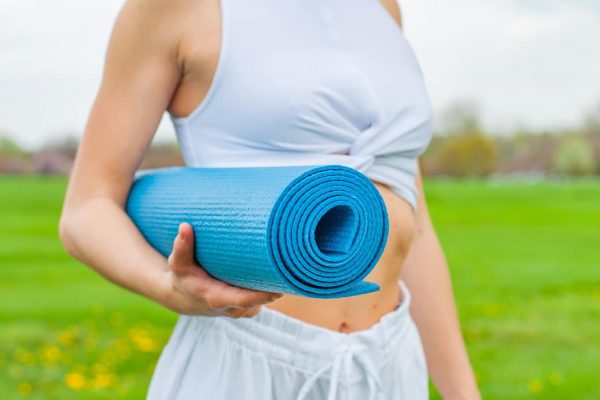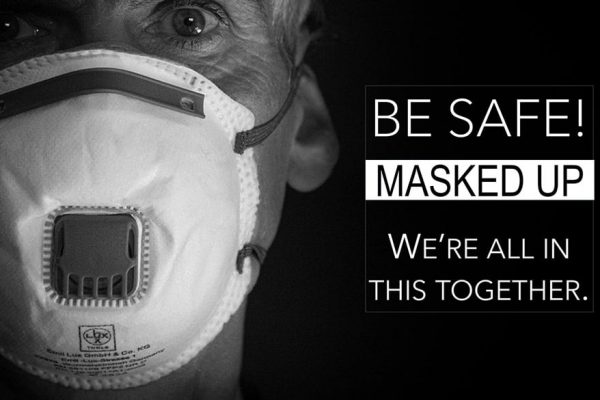As states reopen after stay-at-home orders, many are requiring face coverings in public places to help decrease the spread of COVID-19. The CDC and the WHO alike are now recommending masks for the general public. However, earlier on, both organizations said that we should not wear masks – a shift in opinion that may have helped confuse a lot of people about the efficacy of face coverings. However, the science is clear. Masks can help prevent the transmission of COVID-19, and the more people that wear them, the better.
Why did the CDC change its recommendation?
Back when the CDC was saying not to wear masks, the prevalence of COVID-19 was believed to be far lower than it actually is. For a disease that isn’t very common, it may not make sense to force a whole population to wear masks. However, we now know that the apparent low number of cases in the beginning was more likely the result of inadequate testing, providing a false sense of security.
Another concern was the limited supply of masks and the need to reserve them for healthcare workers. However, even when the supply of KN95 masks was panic-inducingly low, people could have been wearing cloth masks (even homemade ones) all along and, if they had, we could possibly be in a very different situation right now.
An increasing disease prevalence and a heightened awareness of asymptomatic and pre-symptomatic transmission are the two most likely reasons for the CDC’s change of heart. We now understand that viral load peaks before symptoms ever appear and that even normal speaking is enough to expel infected droplets – not to mention the fact that some people never develop symptoms at all, yet can still transmit the virus. For this reason, you cannot tell by looking at someone that they aren’t “sick.” Therefore, everyone should wear masks to protect both themselves and others around them.
Where is the evidence that the new guidelines are correct?
You may hear people say, “There is no evidence that wearing masks reduces transmission.” Don’t believe it. There is plenty of evidence to exactly the contrary, such as this review. If you aren’t convinced, here are an experiment and a peer-reviewed study that both show clearly that masks are effective at slowing the spread of infectious diseases.
However, the strongest evidence comes from the study of real-world environments. For example, one study compared the rate of transmission in over a dozen states before and after mask mandates. It concluded clearly that mask mandates do slow the spread of the disease. Another study examined the COVID-19 death rates in 198 countries and discovered that those with mask mandates or cultural norms that favored mask-wearing had fewer deaths.
There are also compelling case reports that strongly suggest that masks can keep people from getting sick even in high-risk situations. For example, one man with a dry cough flew from China to Toronto and then tested positive for COVID-19. However, he was wearing a mask, and none of the 25 people sitting closest to him contracted the illness. In another case, two Missouri hairstylists had contact with nearly 150 clients while they were sick with COVID-19. Everyone wore masks, and every client with whom they came into contact subsequently tested negative.
Who do masks protect?
Is your mask there to protect you or the people around you? Most experts agree that the biggest benefit is for keeping people with COVID-19 from infecting other people. However, you will still receive some benefit from wearing a mask, even if you are healthy. Masks can also prevent larger droplets from evaporating into smaller droplets that can remain in the air for longer and travel farther. And keep in mind that, as mentioned, you could be an asymptomatic carrier and not know it, so don’t make the mistake of thinking that if you aren’t sick, you don’t need a mask.
Does the type of mask matter?
While there have been studies that have compared various masks and materials, the top consideration for the general public should probably be comfort. That’s because the most comfortable mask is the one you’re most likely to wear consistently. N95 respirators are necessary only in medical scenarios. In general, surgical masks may be more effective than cloth masks, and they may feel lighter and more comfortable on.
The bottom line, however, is that any mask that covers your nose and mouth will help. Remember that the goal is risk reduction – not absolute prevention. If you are concerned that a mask may not be 100% effective – but it’s all you have – wear it. It’s almost certainly better than nothing. Consider this: if you have high cholesterol and your doctor recommends medication to help prevent a heart attack, you’ll most likely take it, even though you understand that this medicine does not prevent heart attacks 100% of the time. The idea is to reduce your risk – the same as with masks.
Are masks still necessary with social distancing?
There are three steps you can take that, together, dramatically lower your odds of contracting COVID-19: wear a mask, wash your hands, and watch your distance. Of these three, wearing a mask is the most important thing that you can do. Unlike transmission through inhaled droplets, there is actually little evidence that contaminated surfaces are a major source of transmission. One final thought to keep in mind: your eyes are a potential source of transmission, and your mask doesn’t cover them. Therefore, it’s important to keep your distance from other people and to wash your hands before touching your face – even while wearing a mask.
Photo by cottonbro from Pexels









